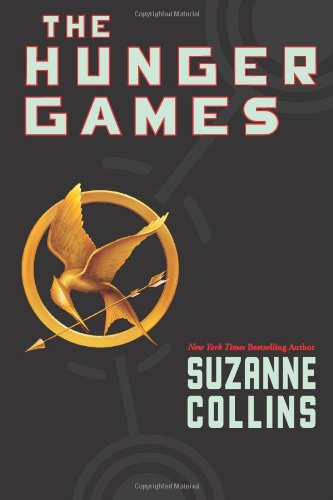Happy Independence Day! Here's a grim science fiction novel to remind everybody of what the United States is meant not to be...
A Fair Trade Book
Title: The Hunger
Games
Author: Suzanne Collins
Date: 2008
Publisher: Scholastic
ISBN: 978-0-439-02348-1
Length: 374 pages
Quote: “[T]he competitors must fight to the death. The last
tribute left standing wins.”
That sort of thing was entertainment in ancient Rome. It’s
also entertainment in Panem, the horrible dystopian society that has arisen
from the wreckage of the United States. In the ultimate reality TV show, twenty-four
teenagers won’t be just voting one another off the island. A girl called
Katniss (who already has a boyfriend) and a boy called Peeta decide to protest
the hunger-and-murder “games” by protecting each other while the other
competitors kill each other off. The games are rigged with lots of built-in
dangers, apart from the competing “players,” so you know Katniss and Peeta will
be hurt if not dead by the time the competition are gone…
Actually, by now, you know they’ll survive, because the
story is a trilogy. They'll survive so that the sadistic dictators of their country can think of other horrible things to do to them.
Collins’ writing talent is enough to keep people reading
these books despite their sustained unpleasantness. I read this first volume
after Mockingjay had been printed,
knowing how the story had to end in The
Hunger Games, and I will admit it was a page-turner.
Some teachers have actually put the Hunger Games series on high school reading lists, claiming that
it’s a good introduction to the study of ancient history. I suspect that
reading ancient history would be a better introduction to any study of
dystopian science fiction students care to make. However, The Hunger Games has redeeming social value: If Americans continue
to disown responsibility for our society, putting our trust in an ever bigger
and more dysfunctional government, we can expect to slide down into tyranny
just as ancient Rome did, and we might well end up being “entertained” by
regular slaughters of slaves.
And it has local appeal. In Katniss’ world, bioengineering
has altered the landscape and the concept of sovereign States has been
forgotten, but the “district” Katniss and Peeta are representing as “tributes”
in the Hunger Games just happens to be the Appalachian Mountain region.
Somehow, there are still workable seams of coal, and people still hunt and
forage for good-quality food. They’re hillbillies; their individualism is what
allows them to protest, and survive, the Games.

No comments:
Post a Comment